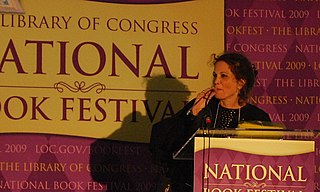A Quote by Neil Armstrong
The regret on our side is, they used to say years ago, we are reading about you in science class. Now they say, we are reading about you in history class.
Related Quotes
We're the highest taxed nation in the world. Our middle class is just reeling from the taxes. And you know, if you think about it, the middle class and the workers of this country, who really built the country, they haven't had a raise in 12 years. They're making less now actually - to be even worse about it, they're making less now than they did 12 years ago.
Think about reading: Today, parents would love it if their kids read books more because the parents understand the books. Just over 100 years ago, parents were upset because their kids were reading dime-store novels. Parents would say, "I don't want you inside reading anymore. Get outside and play." I guarantee you, in 50 years or so, parents are going to say, "You're not going outside to play until you finish that video game."
I don't want to stand with somebody's praise. Whereas now when people come up to me, they say, "I love the bookstore" and "Kids! Come here, come here! This is the woman who owns the bookstore." That's incredible. I can say to that, "Thank you for shopping local. Thank you for coming in. What are you reading? Let's talk about books." It's about something I'm doing as opposed to somehow something I am. I feel comfortable and positive in that role. Because it's about reading. It's about books. It's about learning. It's about business and tax base.
Of course, an English aristocrat might have some contact with the staff downstairs and could adequately say a thing or two about inter-class dramas unfolding in the household. But something less parochial might be harder to come by. This is relevant because stories about the divisiveness of class are by definition stories that straddle class boundaries. A story about a miner in a mining town is not obviously one that speaks to the divisiveness of class. In other words, class doesn't just divide us in the world but it also divides us in the stories we're presented.
When I went to high school - that's about as far as I got - reading my U.S. history textbook, well, I got the history of the ruling class. I got the history of the generals and the industrialists and the presidents that didn't get caught. How 'bout you? I got all of the history of the people who owned the wealth of the country, but none of the history of the people that created it.
When the Democrats are attacked for [inciting class warfare] they shrink back. They don't say what obviously should be said, "Yes, there is class warfare. There has always been class warfare in this country." The reason the Democrats shrink back is because the Democrats and the Republicans are on the same side of the class war. They have slightly different takes. The Democrats are part of the upper class that is more willing to make concessions to the lower class in order to maintain their power.
When I used to say I wanted to play at Wimbledon, they used to laugh in my face and say, 'What are you talking about, you're from Hyderabad, and you're supposed to... cook.' That's one of the notions that people have in this side of the world - it is our 'culture', within quotes, you know, to say what a woman can or cannot do.


































